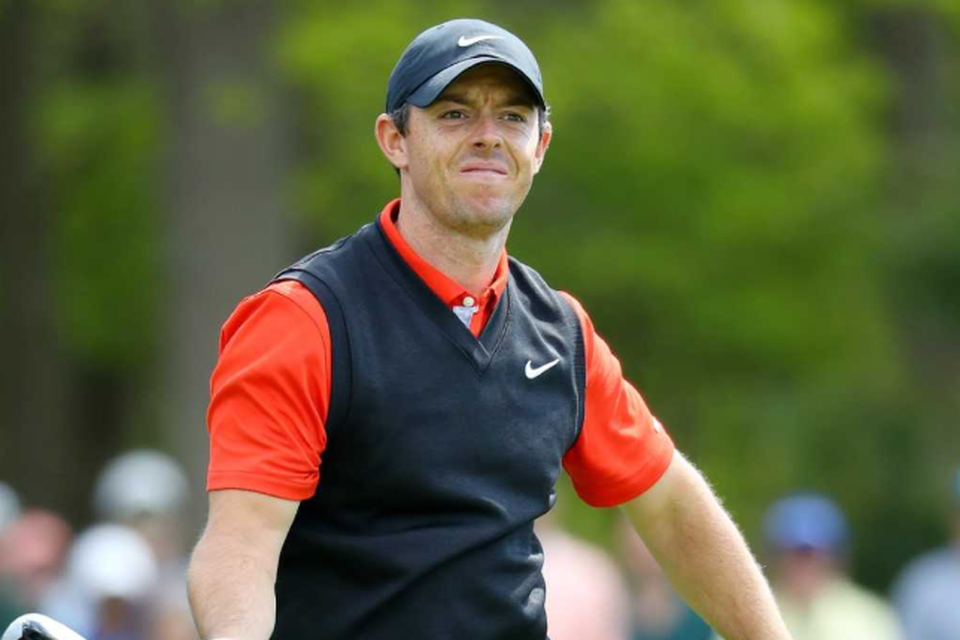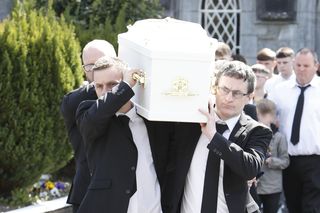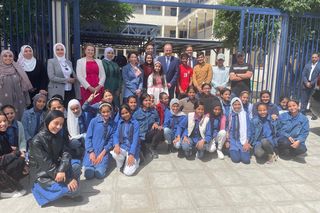Tommy Conlon: 'Rory an accidental voice for sanity amid the tumult of the patriot game'
THECOUCH@INDEPENDENT.IE
Rory McIlroy
You couldn't exactly call him a man of international mystery, but Rory McIlroy's work makes him an internationalist - and his mind is prone to moving in mysterious ways.
As professional sportsmen go, his is one of the more interesting minds on the contemporary scene. He is evidently a thoughtful, self-aware sort; he speaks well, and frequently does so with no little courage. Most of us don't know him from Adam but even at a remote distance he comes across as affable, accessible and grounded; a superstar with a healthy dose of cop-on and general good manners.
Last week and rather out of the blue, he announced he would be going to the Tokyo Olympics next year (presuming he qualifies) and would be representing Ireland there. Well, blow me down and wrap the green flag round me boys! The great man had changed his mind about a) the Olympics and b) the patriot game.
On a distant radio frequency, coming in on the airwaves from Denmark, we could hear the voice of his former fiancée Caroline Wozniacki as she snapped sarcastically: 'Big deal! So what?' Then throwing her eyes up to heaven: 'Didn't he change his mind about marrying me?' Can't argue with that, to be fair.
So, in the grander scheme, it is not the biggest volte-face he has ever committed. But it is still intriguing. Back in 2016 he'd pretty much rubbished the idea of golf becoming an Olympic sport. With admirable candour he reckoned the whole thing was a bit of a ready-up, a contrived event with no tradition and not a scintilla of the prestige attached to golf's own great tournaments, the four Majors in particular. Prior to Rio de Janeiro, golf hadn't been an Olympic sport since 1904.
"I have four Olympic Games a year," he said back then. "That's my pinnacle. That's what I play for. That's what I'll be remembered for.
"Most other athletes dream their whole lives of competing in the Olympics, winning an Olympic gold, and we haven't. We dream of winning Claret Jugs and we dream of winning Green Jackets."
On top of that there was, inevitably for McIlroy, the infernal issue of his national identity. If he did sign up for the Rio games, whom would he represent - Ireland or the UK? He was caught between a rock and a hard place. His entire young life had been devoted not to this dreary provincial squabble, but to reaching excellence in a global game.
The latter was a damned sight harder to achieve than waving a flag. The technical complexity and psychological demands of his chosen craft, allied to the fearsome competitive environment of professional golf, meant he had no time for the mediocrity of tribalism. To become a master of one would require the complete exclusion from his life of all the surrounding noise in Northern Ireland. In fact, if anything, the golf course would have been a sanctuary from all that primitive energy.
He ended up achieving a most extraordinary feat: he became the number one golfer in the world, bar none. It was an amazing apotheosis. And at 30 he may well do so again. He has won four Major tournaments. The latest Sunday Times rich list estimates his wealth at £138m. He long ago escaped what James Joyce called "the nets of nationality, language, religion".
His adult life has been essentially stateless, unshackled by borders or matters of ethnicity. McIlroy is a citizen of the world, an elite global migrant, moving from one luxury hotel to another, travelling by private jet, his passport a redundant document. His passport instead has been his pure, luminous talent.
It is no wonder then that he loathed being dragged back into the parochial mire that still blights his place of birth. He had bailed out on Rio, citing the Zika virus as a health hazard, an excuse that was met with widespread scorn. In an interview with Paul Kimmage published by the Sunday Independent in January 2017, McIlroy got down to brass tacks.
"It (the Olympics) put me in a position where I had to question who I am. Who am I? Where am I from? Where do my loyalties lie? Who am I going to play for? Who do I not want to piss off the most? I started to resent it. And I do. I resent the Olympic Games because of the position it put me in."
Justin Rose won the gold medal in Rio. He texted Rose his congratulations. The Englishman asked in reply if he felt like he'd missed out on the chance of a medal. And, "I said: 'Justin, if I had been on the podium (listening) to the Irish national anthem as that flag went up, or the British national anthem, I would have felt uncomfortable either way.' I don't know the words to either anthem; I don't feel a connection to either flag; I don't want it to be about flags; I've tried to stay away from that."
Not even Joyce, for a finish, could escape all the nets all of the time. But in refusing point blank to play the patriot game, McIlroy perhaps unwittingly has become a voice for his own generation of Northern Irish citizens who recognise it for the sham that it is. He has been an almost accidental voice for sanity and enlightenment.
And now that he has decided to go to an Olympics, and to represent Ireland there, he will at least be doing it on his own terms. He has created his own space, a post-nationalist, post-tribal space, and he has had to fight for the right to do so. It took a lot more courage than merely flying a flag of convenience and hiding behind it.
One hopes sincerely that he will be able to bring a medal home - wherever home is in his heart.















